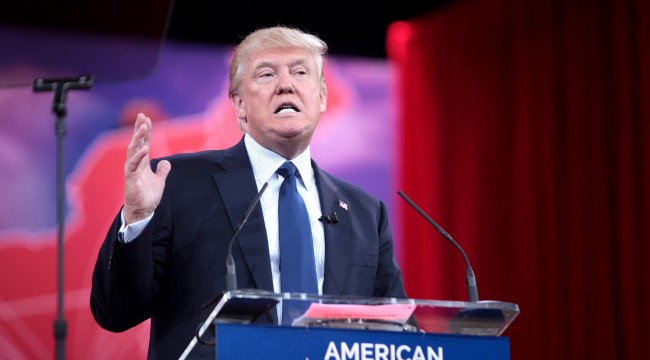Why Extreme Politicians Are On The March
LONDON — Party politics usually bores me.
I have to say though that from the outside looking in, the Labour Party leadership contest holds an ugly fascination.
Jeremy Corbyn, a hard left permabackbencher for 32 years, suddenly looks like he’s in with a shout.
Not left wing enough? Really?
If he does win, it would in effect mean Labour has concluded voters rejected them in May for not being left-wing enough. Which would be ridiculous.
Before I go on, I want to make clear this isn’t going to be one of those articles you may have read that riff on Labour’s pain. I have good friends who support Labour. One of my best friends has been a card-carrying party member since his teens.
Most of my Labour-supporting friends don’t fit the leftist stereotype. Some are very successful in the City, others are self-employed. They are pragmatic, business-minded people.
I imagine they’re horrified to see the party flirting with electoral self-immolation. For my own part, though no Labour supporter I’d prefer not to live in a democracy where the opposition is ineffective, or where its ideas make sense only in a parallel universe.
Watching the contest from afar, the main question on my mind is:why?
Why is this bloke in with a chance?
Why can’t Labour members see that this would keep their party out of power until at least 2025?
Why don’t the unions realise their agenda can only begin to be served if the party they back is actually in power? How do years in the wilderness help their members?
For an answer to these whys, we turn to a classic piece of microeconomics.
Where to park your ice cream van
You own an ice cream van. You drive it to a nearby beach on a hot summer’s day. The beach is a mile long strip, packed from end to end, and you’re the only ice cream seller there.
Where do you park your van?
Most people would answer “halfway down the beach”. Correct. This will minimise the average distance customers need to walk to buy your ice cream.
But what’s this? A second ice cream van turns up.
Question: what’s the best place for this guy to park his van?
Some people answer by saying he should go to one end of the beach to avoid direct competition with you. Others say he should be midway between you and the end of the beach.
Actually, from his point of view the best place to park is right next to you. That way, he’s the (slightly) closer option for half the beach.
A third van turns up. Where does he go? You guessed it – right next to the first two.
This is known as Hotelling’s Location Theory, after the economist Harold Hotelling.
It’s often been used to explain why “all politicians sound the same”, and why you often can’t get a cigarette paper between their policies.
The centre ground has lost its appeal
Back to the Corbyn question, and clearly the Hotelling model doesn’t apply.
Philip Stephens in today’s FT has an interesting argument likening the left-wing Corbyn to Donald Trump, whose deliberately provocative statements have pushed him to the top of the polls for the Republican presidential nomination.
Writes Stephens:
Odd bedfellows as they may seem, Messrs Trump and Corbyn share more than the fragilities of their parties. Strip out the policy specifics and they carry the same core message to the disenchanted and disgruntled: we can stop the world and get off…
…Look across Europe and you see the same marriage of far left and right: a shared populism that plays to the anger and frustration of electorates battered by recession and by the economic and physical insecurities of globalisation. This is politics without answers, but it has been winning votes for the National Front in France, Syriza in Greece and the Five Star Movement in Italy
Another why: why are people drawn to “politics without answers”?
I don’t think it’s a simple case of people being seduced into foolishness by an alluring message, though that explanation will apply in some cases.
Rather, I believe it’s because for many people the traditional centre ground doesn’t offer them answers either.
To sound like an unreconstructed economist for a second, for many people the opportunity cost of voting with their heart rather than their head has gone down.
A bigger question is why the centre no longer appeals. Why are people rejecting the ice cream sold in the middle of the beach?
The answer, in my view, is economic. A crisis followed by sluggish recovery has left many feeling that the status quo doesn’t work for them.
Regards,
Ben Traynor
for The Daily Reckoning, U.K.
P.S. Be sure to sign up for The Daily Reckoning — a free and entertaining look at the world of finance and politics. The articles you find here on our website are only a snippet of what you receive in The Daily Reckoning email edition. Click here now to sign up for FREE to see what you’re missing.



Comments: